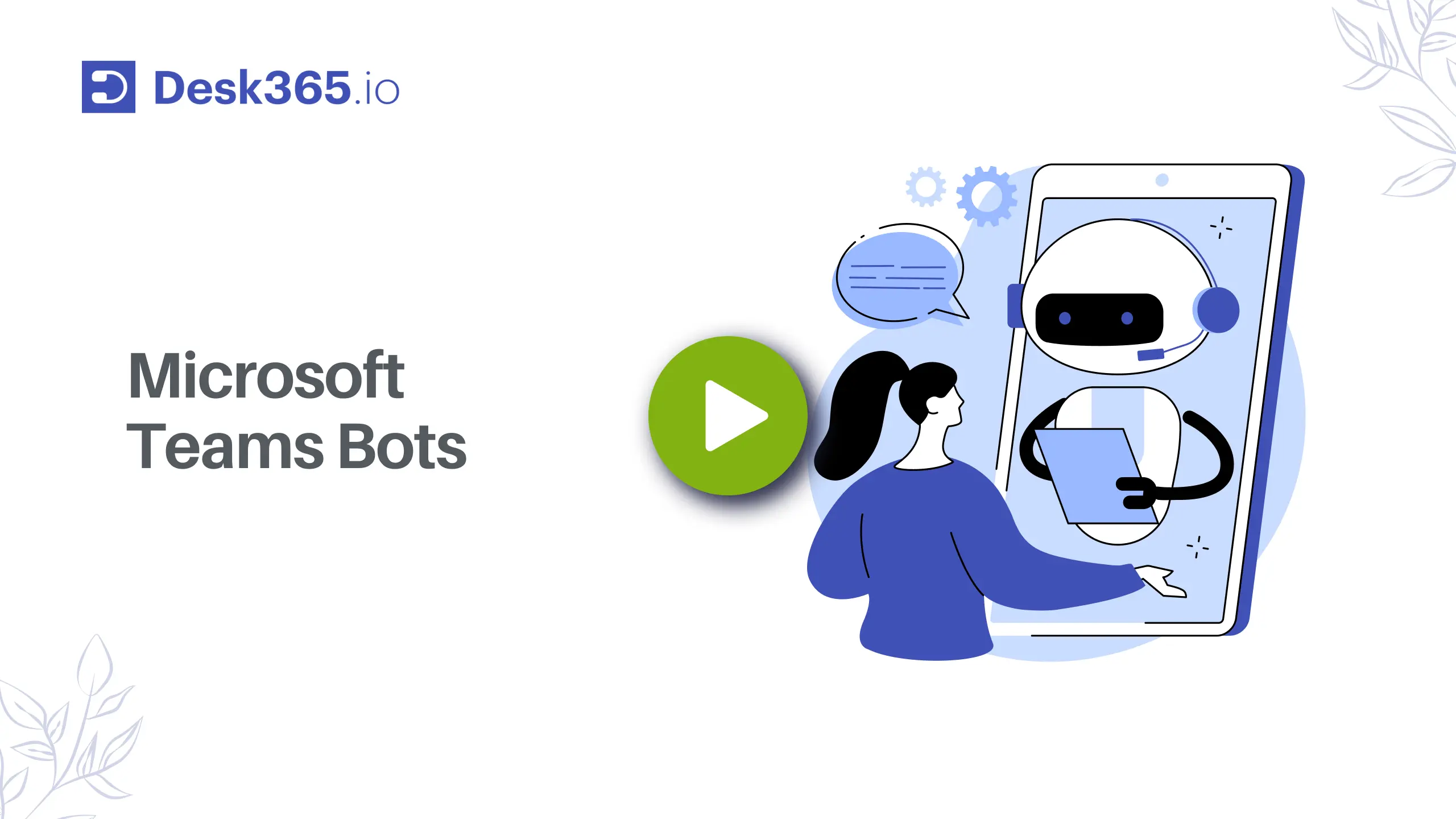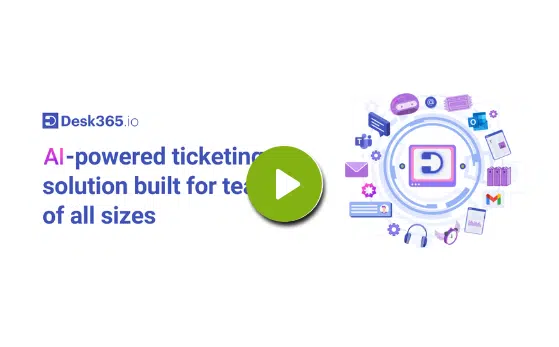AI adoption has really taken off in recent years, and it’s becoming a game changer for a lot of industries. From healthcare to retail to finance, businesses are using AI to do everything from improving customer service to making smarter decisions with data.
For example, in customer support, AI-powered chatbots are handling tons of queries, helping companies save time and money while keeping customers happy with quick responses.
In sales and marketing, AI is helping teams figure out which leads are worth pursuing and even creating personalized experiences for customers, leading to better conversion rates. AI is also a huge help in fields like finance, where it can predict market trends and assist in real-time decision-making.
Let’s take a look at the AI statistics for each industry to see how AI is making an impact.
AI in Education
“AI has moved from theory into the everyday of schools. It hasn’t replaced much, but it has made things less manual with little fanfare.”
– Mark Friend, Company Director at Classroom365
1. AI in Personalized Learning – AI-based tutoring systems have improved student retention rates by 25%. (Source: Vorecol)
2. AI in Classroom Efficiency – 50% of teachers use AI to analyze student performance data for better outcomes. (Source: AIPRM)
3. AI in Course Completion – AI-powered learning platforms have reduced dropout rates in online courses by 30%. (Source: Omnisearch)
4. AI in Administrative Support – 40% of schools use AI to assist in administrative tasks, saving hours of manual work. (Source: Tandfonline)
5. AI in Collaboration – 35% of educators believe AI tools can improve collaboration in the classroom. (Source: Appinventiv)
AI in E-Commerce
“One of the standout ways AI is propelling our business is through personalized shopping experiences. By leveraging AI-driven analytics, we’re able to offer tailored product recommendations to customers based on their browsing history and preferences. This not only enhances user experience but also significantly boosts conversion rates.”
– ECommerce Growth Strategist at Shewin.com
6. AI in Customer Engagement – AI-driven product recommendations increase sales by 20% on average for online retailers. (Source: Big Sur AI)
7. AI in Marketing – 48% of e-commerce companies use AI for customer segmentation and targeting. (Source: Jetir)
8. AI in Inventory Management – AI-based inventory management systems have reduced overstocking by 15%.
9. AI in Personalization – 60% of online shoppers report that personalized recommendations improve their shopping experience. (Source: Wisernotify)
10. AI in Sales Conversion – 52% of consumers are more likely to buy from a site that offers AI-driven personalized shopping.
AI in Real Estate
“One of the biggest innovations has been the integration of AI-driven chatbots and property recommendation engines on our site. For example, AI-powered chat tools now handle over 60% of initial buyer inquiries, providing instant, tailored answers around the clock—something we simply couldn’t match with human support alone.”
– Mark Sanchez, founder of Gator Rated, online real estate platform.
11. AI in Lead Generation – 55% of real estate agents use AI for lead qualification and follow-up. (Source: Lofy)
12. AI in Property Valuation – AI-powered property valuation tools have improved accuracy by 35%. (Source: FoxyAI)
13. AI in Market Trends Prediction – AI-driven real estate platforms have reduced time-to-market for properties by 25%. (Source: Medium)
14. AI in Market Analysis – 40% of real estate companies are using AI to predict market trends and property prices. (Source: Number analytics)
15. AI in Property Search – AI has reduced property search time for buyers by 50%. (Source: Numalis)
AI in Digital Marketing
“One of the most impactful ways AI is driving innovation for us is through automated real-time campaign adjustments. Running digital ad campaigns involves constant monitoring and tweaking. Think about how many factors can change in an hour, let alone a day: competitor bids, audience engagement shifts, and even global news. AI automates this by continuously analyzing performance data in real-time, adjusting bids, targeting, and even creative rotations to maximize ROI.”
– Kevin Heimlich. CEO and Founder of The Ad Firm, a multi-award-winning digital marketing firm.
16. AI in Content Creation – 63% of marketers use AI for customer insights and behavior tracking. (Source: EMB Global)
17. AI in Chatbots – AI chatbots have improved response rates by 40% on marketing campaigns. (Source: Qualified)
18. AI in Social Media – AI in social media marketing has increased engagement rates by 30%. (Source: Kroolo)
19. AI in Customer Targeting – 50% of companies report that AI has improved customer targeting in digital advertising. (Source: Number Analytics)
20. AI in Ad Performance – AI tools have increased ad click-through rates by 25% on digital platforms. (Source: Numalis)
AI in Finance and Accounting
“At DollarBureau, I’ve implemented AI-driven chatbots to deliver customized budgeting tips and investment insights to readers in real-time. For example, one chatbot successfully helped readers reduce spending by suggesting personalized budgeting strategies, boosting engagement by over 25%.“
– Firdaus Syazwani , Founder of Dollar Bureau
21. AI in Fraud Detection: 67% of financial services firms use AI for fraud detection (Source: Accenture).
22. AI in Trading: AI-driven trading is expected to account for 50% of all trading by 2026 (Source: Bloomberg).
23. AI in Credit Scoring: AI-powered credit scoring models can reduce default rates by 25% (Source: McKinsey).
24. AI in Wealth Management: 48% of wealth managers are using AI to enhance portfolio management (Source: PwC).
25. AI in Insurance: The global market for AI in insurance is projected to grow at a CAGR of 40% from 2023 to 2028 (Source: Grand View Research).
26. AI in Financial Audits – AI tools have reduced the time spent on financial audits by 40%. (Source: Trullion).
27. AI in Financial Forecasting – AI-based predictive analytics have increased financial forecasting accuracy by 20%. (Source: BCG).
28. AI in Accounting Accuracy – AI has reduced accounting errors by 15% in large enterprises. (Source: MDPI).
29. AI in Cash Flow Management – 50% of CFOs are using AI for cash flow management and forecasting. (Source: Kyriba).
30. AI in Payroll Efficiency – AI-driven accounting systems have reduced payroll processing times by 30%. (Source: Vorecol).
AI in Healthcare
“Healthcare using AI to predict patient needs reely! For instance, algorithms analyze medical data to spot health risks long before traditional methods. Isn’t that just fascinating? If we think about it, these uber-smart tools are not just ideas, they’re reshaping industries, one deal at a time!”
31. AI in Diagnostics – AI-assisted diagnostic tools have increased the early detection of diseases by 25%. (Source: NCBI).
32. AI in Administrative Automation – 45% of healthcare providers use AI to automate administrative tasks. (Source: Simbo).
33. AI in Scheduling Efficiency – AI has improved patient scheduling efficiency by 20%. (Source: Simbo).
34. AI in Imaging Analysis – AI has reduced the time spent on medical imaging analysis by 50%. (Source: PMC).
35. AI in Patient Compliance – AI-powered wearable health devices have increased patient compliance with medical regimens by 30%. (Source: PMC).
AI in Manufacturing
“Speaking of real results, we recently used AI to analyze 5 years of financial data for a manufacturing client. The system identified seasonal patterns we’d missed and suggested inventory optimization strategies that freed up about $2M in working capital. That’s the kind of insight that makes clients stick around.”
– Andrew Lokenauth, BeFluentInFinance.com
36. AI in Maintenance – AI-based predictive maintenance systems reduce factory downtime by 25%. (Source: Medium).
37. AI in Real-Time Monitoring – 60% of manufacturers use AI to monitor supply chain performance in real-time. (Source: Winsavy).
38. AI in Robotics– AI-driven robots have increased manufacturing output by 20%. (Source: Medium).
39. AI in Energy Efficiency – 50% of factories are using AI to optimize energy usage, saving up to 15% on costs. (Source: SME).
40. AI in Quality Control – AI tools have improved quality control in manufacturing, reducing defects by 10%. (Source: Automation World).
AI in Gaming
“AI has enabled us to prototype game levels and NPC dialogues, reducing concept-to-playable time by 40%.”
– Cristian, CEO of OnlineGames.io
41. AI in Game Design – AI-assisted game design has reduced concept testing time by 40%.
42. AI in Player Retention – AI-powered systems have increased player retention rates by 25% in multiplayer games. (Source: Digitaldefynd).
43. AI in Content Generation – 30% of gaming studios use AI to generate procedural content for their games. (Source: Reddit)
44. AI in Cost Reduction – AI is reducing game development costs by up to 20%. (Source: Appinventiv).
45. AI in Player Engagement – AI-driven personalized game experiences have boosted daily active users by 15%. (Source: Byteplus).
AI in Customer Support
“AI is reshaping the moving industry faster than we admit. At iMoving, we’ve cut customer service response times by 47% since integrating AI-powered chat and quote systems. We’ve replaced outdated phone tags with instant online bookings with no friction, just results.”
– Meyr Aviv, the Founder & CEO of iMoving
46. By 2025, 80% of customer service and support organizations are expected to apply generative AI technology in some form. (Source: Forbes)
47. 85% of customer interactions will be handled without human intervention by 2025. (Source: Desku.io)
48. AI-powered tools can reduce resolution times by up to 50% through automation and predictive support. (Source: Desk365.io)
👉Read more – AI in Customer Service Statistics
👉Read more – Conversational AI in Customer Service
👉Read more – 101 Customer Service Statistics in 2026
B2B Sales Prospecting
“AI is beginning to drive innovation in B2B Sales Prospecting, but we’re still in the early innings. While many companies rush to market with AI-labeled features, few deliver tangible value to end users. In my view, the most promising use cases today are narrowly focused, like using AI to improve automated dialers and contact targeting.”
– CTO at Upcell.
49. AI in Lead Scoring– 70% of B2B companies use AI for lead scoring and qualification. (Source: Superagi).
50. AI in Sales Success– 60% of B2B sales teams have improved their outreach success rates using AI-powered tools. (Source: LinkedIn).
51. AI in Predictive Behavior– 50% of B2B companies use AI to track and predict customer buying behavior. (Source: Superagi).
52. AI in Revenue Growth – AI-driven sales prospecting tools have increased sales revenue by 18% on average. (Source: Reporder Management).
53. AI in Sales Pipeline Efficiency – AI-based tools have increased sales pipeline efficiency by 20%. (Source: Reporder Management).
The future of AI
To wrap it up, AI is really making waves across so many industries, and it’s not just a passing trend. From chatbots that help with customer service to AI tools driving sales and predictions, it’s clear that businesses are getting smarter and more efficient.
The stats show that AI is already playing a huge role in healthcare, retail, finance, and marketing—helping companies save time, boost sales, and improve customer experiences. But with all this power, it’s also important that businesses use AI responsibly, making sure they keep things ethical and secure.
The potential of AI is huge, and we’re just scratching the surface of what it can do for industries moving forward. It’s an exciting time, and the future of AI looks incredibly promising!







